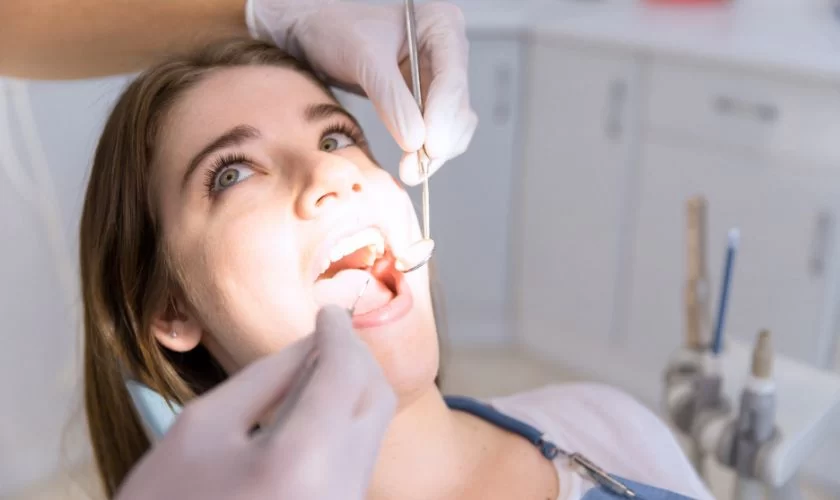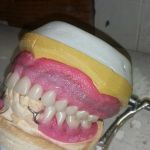
Dental Procedures: What to Expect Before, During, and After
- What to Expect Before Dental Procedures
- The Dental Procedure: What Happens During the Appointment
- Post-Procedure Care and Recovery Tips
1. What to Expect Before Dental Procedures
Preparing for a dental procedure is key to ensuring a smooth experience. Whether you're scheduled for a routine cleaning or a more complex procedure, there are a few things to consider beforehand.
First, your dentist will assess your overall oral health, reviewing your medical history and possibly taking X-rays. If you're anxious, discuss sedation options. Some procedures may require fasting or avoiding certain medications, so it's important to follow your dentist's instructions closely.
It's also helpful to bring a list of any questions you might have about the procedure. This can ensure you feel fully informed and ready for what's to come.
2. The Dental Procedure: What Happens During the Appointment
During a dental procedure, the main focus is your comfort and safety. The dental team will ensure you're comfortable, often providing local anesthesia or sedation to minimize discomfort. The specific process will vary based on the treatment you're receiving.
For a routine cleaning, the hygienist will remove plaque and tartar buildup from your teeth. For more involved treatments, such as fillings, root canals, or extractions, your dentist will carefully explain each step. It's important to ask any last-minute questions and communicate any discomfort during the procedure.
Dental professionals are trained to ensure that the process goes smoothly, and they're dedicated to making you as comfortable as possible throughout the appointment.
3. Post-Procedure Care and Recovery Tips
After your dental procedure, your recovery process is just as important as the treatment itself. Proper aftercare will help you heal faster and avoid complications.
If you had a routine cleaning, you'll likely experience no downtime. However, after more intensive treatments like tooth extractions or root canals, you may experience some swelling or discomfort. Your dentist will provide specific instructions for pain management, such as over-the-counter medications or prescription painkillers if necessary.
In the days following your procedure, avoid eating hard, sticky, or very hot foods that might irritate the area. Follow up with your dentist as recommended to ensure that everything is healing properly. Keeping up with your oral hygiene routine, avoiding smoking, and maintaining a balanced diet will support your recovery.
For example, Sarah, a recent patient who underwent a tooth extraction, followed her dentist’s aftercare advice and was able to return to normal activities within a few days, with minimal discomfort. This shows the importance of adhering to post-procedure guidelines.
With the right preparation, care, and attention, dental procedures can be a smooth and beneficial experience for your oral health.







 Wilshire Periodontics & Dental5.0 (2 review)
Wilshire Periodontics & Dental5.0 (2 review) Classic Dental Laboratory0.0 (0 review)
Classic Dental Laboratory0.0 (0 review) Lakeview Dental PC4.0 (29 review)
Lakeview Dental PC4.0 (29 review) Grafton Dental Care4.0 (152 review)
Grafton Dental Care4.0 (152 review) Dental Health Associates - Sun Prairie Clinic4.0 (622 review)
Dental Health Associates - Sun Prairie Clinic4.0 (622 review) Honey Creek Dental4.0 (58 review)
Honey Creek Dental4.0 (58 review) The Importance of Oral Health Education During Pregnancy for a Healthy Pregnancy
The Importance of Oral Health Education During Pregnancy for a Healthy Pregnancy Best Tips for Brushing Your Teeth Properly for Healthy Gums: Essential Techniques for Oral Health
Best Tips for Brushing Your Teeth Properly for Healthy Gums: Essential Techniques for Oral Health Why Skipping Dental Checkups Can Lead to Bigger Oral Health Problems
Why Skipping Dental Checkups Can Lead to Bigger Oral Health Problems Advantages of Porcelain Dental Restorations
Advantages of Porcelain Dental Restorations How Can Diabetes Cause Tooth and Gum Problems? Preventing and Managing Oral Health Issues
How Can Diabetes Cause Tooth and Gum Problems? Preventing and Managing Oral Health Issues Healthy Habits for Promoting Good Oral Health and Hygiene: Tips for a Healthy Smile
Healthy Habits for Promoting Good Oral Health and Hygiene: Tips for a Healthy Smile